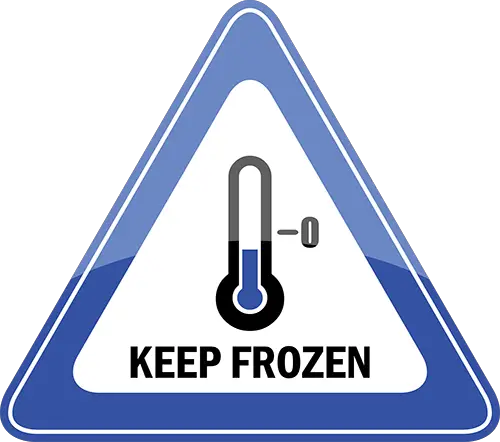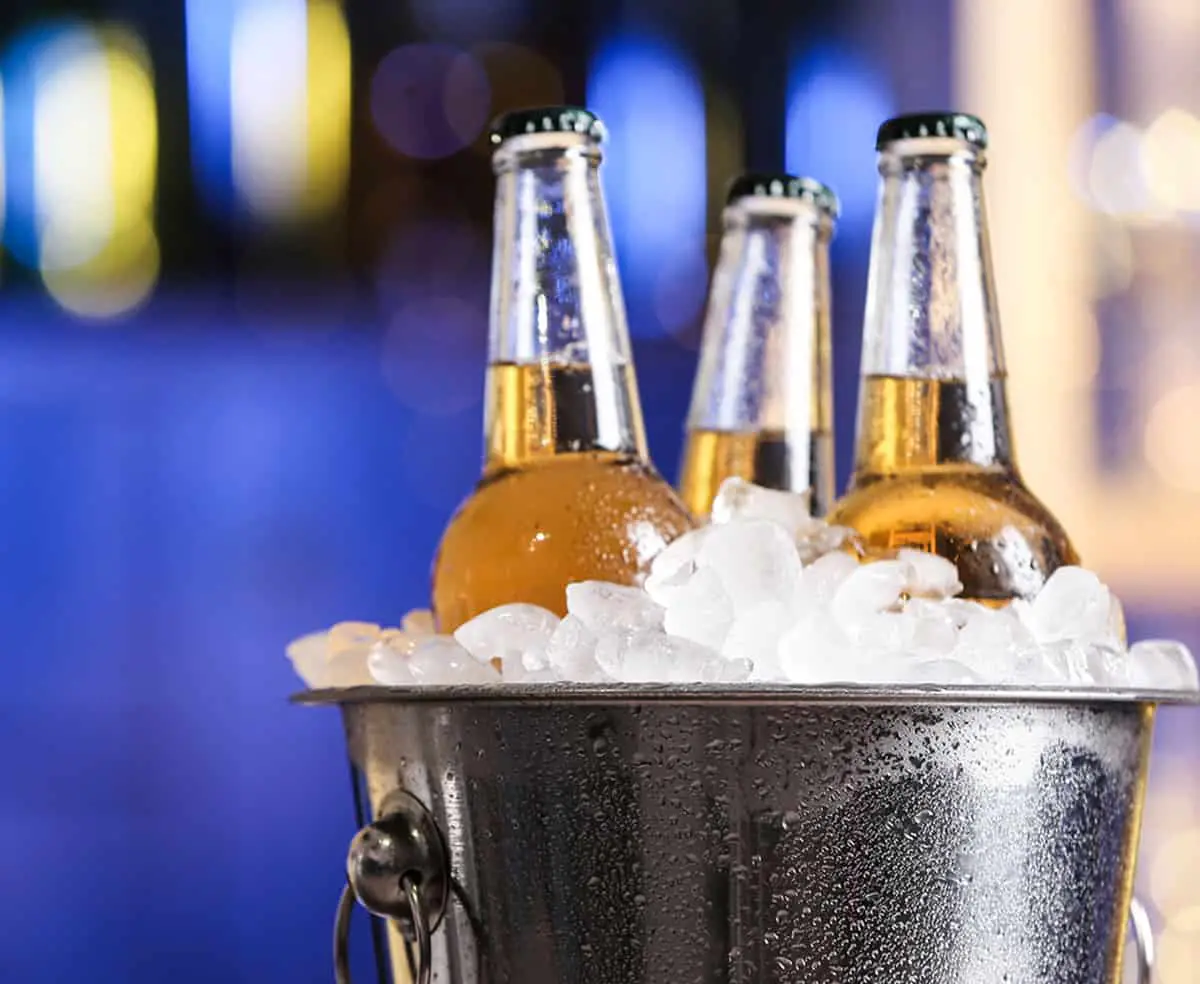Can You Freeze Wine For Cooking & Drinking? (Explained)
Wine is an excellent choice as a beverage, but it’s also great for cooking. But most recipes only call for tiny amounts of wine, so if you’re not much of a wine drinker you may be wondering if it’s possible to freeze the rest.
You can freeze wine for 3-4 months by placing it in a freezer-safe container, but you shouldn’t freeze it in the original bottle because it may crack. Although it’s perfectly safe to freeze and drink wine, it may affect the taste and texture. It’s best to use frozen and defrosted wine for cooking.
In this article, I will discuss freezing wine in greater detail. Be sure to read on to learn more!
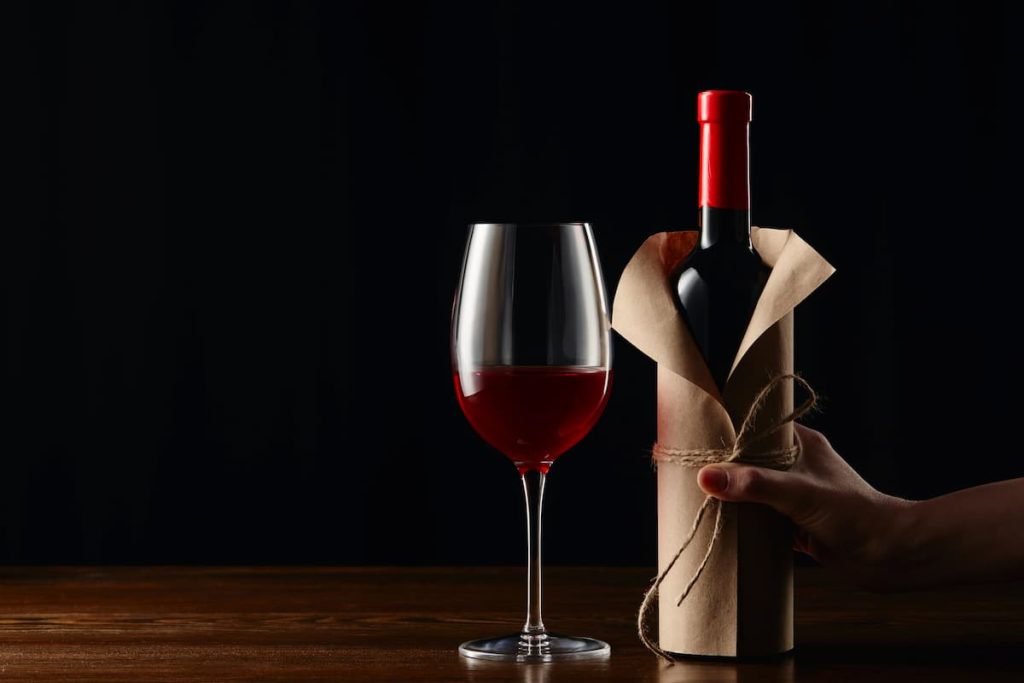
How To Freeze Wine
Freezing wine may seem like a strange concept, but it can be handy if you use a lot of recipes that require wine. Here’s the best way to freeze wine:
- Transfer the wine to a freezer-safe container. Technically, you can freeze it in the original bottle, but not all wine bottles can handle freezing temperatures, and they might crack. Using a freezer-safe container will make your life easier.
- Write the date on the container. Before freezing, it’s good to put the date on it, as this will help you remember when you put it in the freezer. This way, you can avoid leaving it frozen for too long.
- Place the wine in the freezer. You can leave your wine in the freezer for a few months, but the sooner you use it, the better. Leaving it too long will negatively affect the taste.
- Remove the wine from the freezer when you’re ready to use it. You’ll want to remove it from the freezer a couple of hours before you plan on using it so that it has time to defrost safely.
If you want, you can freeze your wine in smaller portions, which can be especially handy if you’ll be using it for recipes that only call for a small amount of wine.
When freezing wine in small portions, you should use containers like these small HomeyGear Twist Top Containers from Amazon.com. They’re ideal because they come in packs of 12 and are fully sealable. But most importantly, they’re freezer-safe.
How To Properly Defrost Wine
It’s not always necessary to defrost wine. If you’re using it as part of a recipe, and you’ve frozen it in small portions, you can use it straight out of the freezer, and it should blend in seamlessly with the hot ingredients.
But if you’re using it for drink recipes, you will need to defrost it first.
The best and safest way to defrost wine and any other beverage is in the refrigerator. Wine needs plenty of time to defrost in the fridge slowly at an appropriate cool temperature, so you should always use this method.
Once it’s fully defrosted, you can enjoy it.
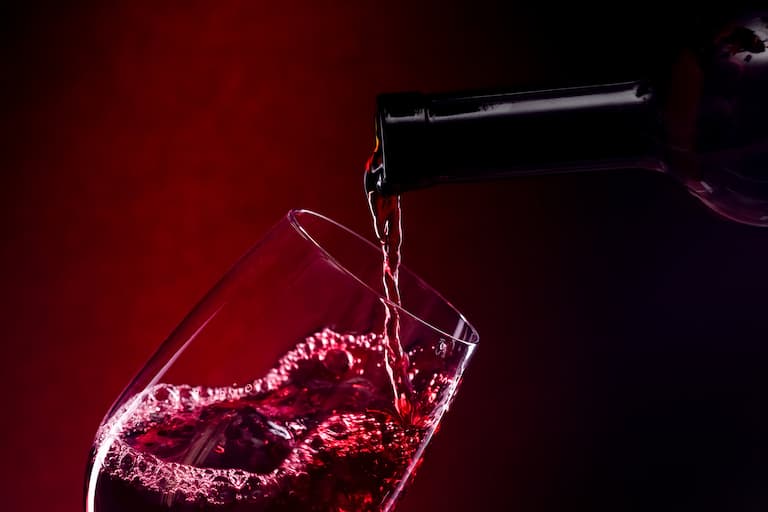
Does Wine Freeze Fully?
Wine doesn’t freeze fully in a standard home freezer because it contains alcohol. However, it generally looks completely frozen because only small parts remain soft. Wine freezes easier than many other alcoholic beverages because it has a lower alcohol content.
Generally, wine, beer, and other low-alcohol content drinks will freeze almost entirely in a home freezer, but it’s normal to notice some soft, unfrozen spots.
Is It Safe To Freeze Wine?
It’s safe to freeze wine, and it’s an excellent alternative to throwing it away. When wine is in the freezer, the growth of most harmful bacteria is paused entirely. This means that it will be susceptible to bacterial growth only once defrosted.
So if your freezer is at a cold enough temperature (0°F or -17.77° C), your wine will be safe in the freezer.
Does Freezing Wine Affect the Alcohol Content?
Freezing wine doesn’t affect the alcohol content because it simply freezes it. Everything melts once you remove it from the freezer, and the alcohol content remains fully intact. So if you want to freeze alcohol, you don’t have to worry about losing out on the most important part.
Although it doesn’t necessarily affect the alcohol content, freezing wine can affect the overall taste and texture. This isn’t always the case, but you should know that this is a risk before freezing it.
If you don’t like how it tastes after defrosting it, you can keep it for cooking or throw it out.
How Long Can You Keep Wine Frozen?
You can keep wine frozen for approximately 3-4 months before the quality deteriorates significantly. But it is safe to leave it frozen for longer, so you can do that if you want. Remember that leaving it frozen for longer than four months will almost always affect its taste.
Like any food or drink you freeze, it’s always best to use it sooner than later. While technically, you can freeze wine indefinitely, it won’t give you the enjoyable taste you’re hoping for.
Can You Refreeze Wine?
You can technically refreeze wine, but you probably shouldn’t. While freezing wine the first time can slightly impact the taste, freezing it a second time will further lessen the overall quality and taste, making it unenjoyable to drink.
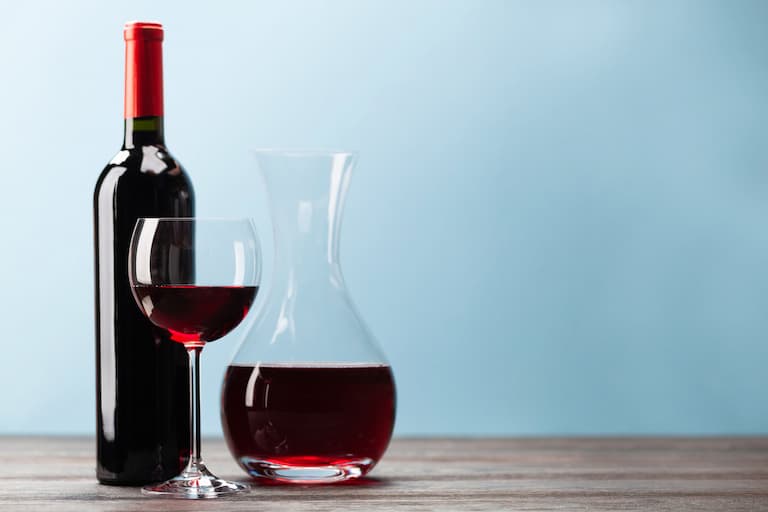
Even if you plan on using the wine for cooking, it’s not worth it to refreeze it. Wine is used to add rich flavor to dishes, so using a wine that you’ve frozen more than once won’t have the ability to add the rich taste you need.
So if you’ve defrosted your wine once and have leftovers, the best thing to do is drink the rest, use it for cooking, or throw it away. Your last resort should be refreezing it.
Can You Freeze Wine For Cooking & Drinking – Summary
You can freeze wine for drinking, but it works best for recipe use. If you plan on drinking the wine, you should avoid freezing it because it may affect the taste.
When freezing wine, transfer it into a freezer-safe container. Freezing it in the original bottle isn’t safe because it may crack as it freezes. You should keep your wine frozen for no longer than four months, but try to use it before this time.
Although it’s safe to do so, you shouldn’t refreeze wine because it will significantly impact the overall taste and quality.
